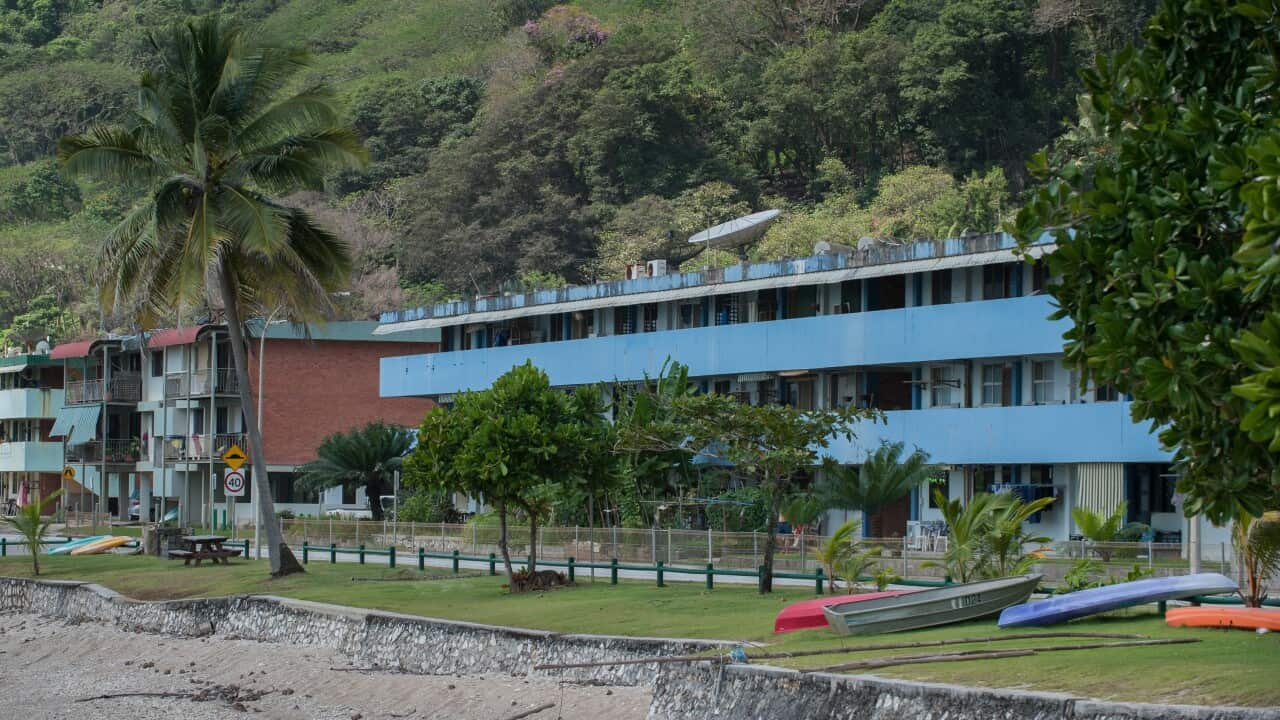(Transcript from World News Australia Radio)
In recent years Christmas Island has become synonymous with processing of asylum seekers.
While plenty of attention has been given to the plight of asylum seekers on the island, some locals feel they've been forgotten.
Thea Cowie reports.
(Click on audio tab above to hear full item)
For John McDonald Christmas Island is home.
He's lived on the remote 135-square-kilometre island for 14 years and runs an engineering business.
In the past five years, he says island life has changed dramatically.
"The island's lost its small town effect of everybody knows everybody - now there's a large number of people that many of us locals don't know. It's just 'oh it's another darkside and another darkside person'. 'Darkside' is the local slang for detention centre."
Since the detention centre was built on the island in 2006, the island population of about 1,500 locals has jumped dramatically.
Mr McDonald says the cost of living is now estimated at about 180 per cent above that on the mainland.
An iceberg lettuce at the local store can cost as much as $12.
A housing shortage, exacerbated by the influx of Immigration Department workers, means some locals are paying as much as $1,000 rent a week.
Mr McDonald says it's causing deep divisions in the community.
"There's two communities here. There's them and there's us to an extent in that they are being flown in and out at government expense. We're paying exhorbitant airfares to get out. They're paid considerably better than what the local pay rates are. The local economy hasn't really changed as far as wage structure is concerned. The money that they're earning isn't really staying on the island. That creates a bit of friction amongst the locals."
Mr McDonald's sentiments are echoed by a socio-economic impact assessment of the effects of the Immigration Detention Centre on the local Christmas Island community.
Commissioned by the federal government and released under Freedom of Information laws last month, the report found the detention boom has left many residents feeling like second-class citizens.
With the cost of living soaring due to hundreds of highly paid fly-in fly-out immigration workers, the report found many locals were upset at seeing immigration staff eating out when they struggle to afford basic groceries.
Mr McDonald says when asylum-seekers first began coming to the island there was a level of sympathy for them among the generally harmonious multicultural community, which includes many people of ethnic Chinese and Malay origin.
But he says that's changed.
"They are illegal immigrants therefore they should have no rights. That's my personal viewpoint and I'm quite strong on that. So are a lot of other people. We all know because of the large Malay and Chinese population here that have brought partners in from Malaysia or Taiwan, we all know what the actual system is to get into this country legally. Now what these people are doing coming in illegally is short-changing the system to a huge extent and most locals are of the same viewpoint that I am: that they deserve what they're getting, they're illegal immigrants."
One man who does not share Mr McDonald's views on asylum-seekers is Christmas Island shire councillor Gordon Thomson.
Mr Thomson has been a vocal critic of the way asylum-seekers have been handled by Labor governments, and now the Coalition government.
He believes his criticism has adversely affected the relationship between the Immigration Department and the island community.
"After that criticism was made of the former government I detected a change in the minister's attitude towards the shire council and particularly towards our proposals for funding some improvements in roads by his department. He seemed to go very cold on us after that political dispute, in my opinion."
Since the Coalition government came to power, Mr Thomson's criticism of asylum-seeker policy has become louder and more prominent.
But he says he's told Immigration Minister Scott Morrison he doesn't want politics to get in the way of a good working relationship.
"There's the day-to-day business of running the detention centre and the work that the Shire does providing services and there's the political debate and they should be kept separate. We're happy to assist those who are tasked to do the department's work on the island and we believe that we have the right to free expression about what the government's doing with refugees. And we all want to feel that we can continue to express our views freely without being punished for them. He assures me that that's exactly the way he sees it."
With the Immigration Minister now only providing a weekly briefing on asylum-seeker arrivals, Mr Thomson has recently become a prolific tweeter, letting the public know of comings and goings on the island.
Australian Greens immigration spokeswoman Sarah Hanson-Young says Mr Thomson's work has been invaluable.
"The role of locals on Christmas Island in helping to shed light on what's really happening, particularly under Tony Abbott's agenda of secrecy, is vital. If it wasn't for locals being able to tell the media and other politicians and others what's really going on, Tony Abbott would think he could continue to pull the wool over the public's eyes."
Under the Labor government, the Christmas Island detention centre became a holding facility for around 400 children and their parents, who are still awaiting the outcome of their asylum claims.
But under the new Coalition policy, new arrivals are quickly sent to Nauru or Manus Island.

